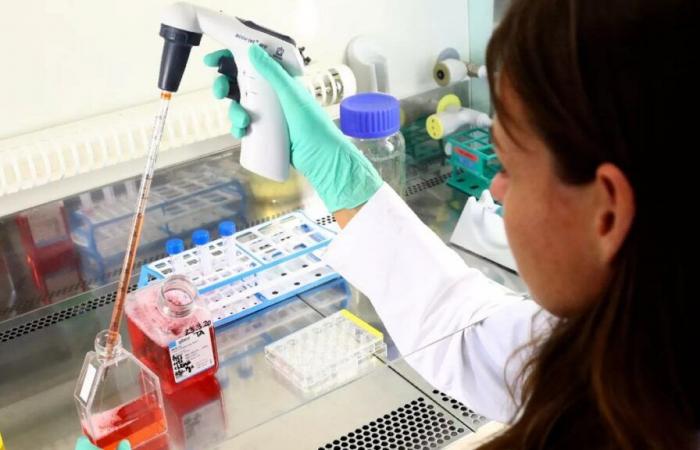The Trump administration has frozen the financing of most collaborations between medical researchers in the United States and abroad, which will have repercussions for thousands of European scientists. The national Health Institutes of the United States (NIH), the world’s largest biomedical research agency, cited the lack of transparency on how their money is spent abroad and the need to protect the national security of the United States.
The NIH assigned Mmore than 35,000 million dollars (33.6 billion euros) to universities, medical faculties and other institutions in 2023. Most of that money is spent in the US, but organizations in that country are usually associated with research teams based abroad. These international partners are considered secondary beneficiaries of NIH and are now in the spotlight of the new policy.
In 2023, the last year with available data, there were 4,800 projects Financed by NIH with collaborators in Europe, according to US government dataalthough that does not necessarily mean that all are active. Projects cover from the development of HIV vaccines until the discovery of how certain genes increase the risk of suffering Obsessive-compulsive disorder (TOC).
The new policy immediately eliminates all future subsidies, including the possibility of renewal for current projects. NIH plan to replace the subsidy program with another financing mechanism at the end of September. The agency said It will not revoke the financing of the ongoing projects that have foreign partners, but left the possibility open to do it in the future.
For Maria Yazdanbakshsh, director of the Infectious Diseases Center of the University of Leiden (Netherlands), this policy creates uncertainty about the future of international collaboration in medical research, as their project funded by NIH to achieve a more effective vaccine against malaria.
“We were going to request more financing to continue with the interesting results of the project,” said Yazdanbakhsh to ‘Euronews Health’, adding that “We will be affected in the futurewhen a promising job stops and does not continue. “From now Scientists from outside the United States are rarely granted. In this way, the agency can monitor more thoroughly how money is spent.
direct financing in Europe
This fiscal year, the NIH only finance directly 17 European projectsin front of the 129 last year; 10 are carried out in the United Kingdom, two in France and two in the Netherlands, and one in Sweden, Finland and Austria. For now, these direct subsidies are not in the spotlight, but the researchers fear that they can be the following.
“There are great scope consequences,” told ‘Euronews Health’ Nicola Stonehouse, a virologist at the University of Leeds who studies the Enterovirus with a scholarship financed by the NIH. “Is An unknown To what extent it will be easy for people from outside the United States to participate in these projects [de investigación médica] In the future, “he added. The decision” really harms international collaboration. “
Dr. Alain Fischer, immunologist and professor emeritus of Collège de France, said that these subcontribus are not usually much money, and told ‘Euronews Health’ that the change is “more symbolic That something else. “According to Fischer, scientists are accustomed to working with colleagues from other institutions and countries, often without any remuneration. But the subconceptions of the NIH will mean” an additional obstacle “that will reduce international collaboration At a time when getting financing is already very competitive, he added.
“Effective Management”
The freezing of foreign financing is the last measure of the Trump administration for remodel the country’s scientific system. In recent months, NIH have canceled hundreds of subsidies and cut billions of dollars in general expenses for biomedical investigation, which has been questioned in court.
The NIH and their parent agency, the US Ministry of Health, did not respond to a request for ‘Euronews Health’ to know in detail How will the new policy affect scientists based in Europe in particular. But in a statement, Jay Bhattacharya, director of the NIH, cited a recent audit of the United States government control agency, which detected supervision problems in 36% of the subcontractations granted outside the country. He said the change “will improve our ability to supervise and manage These financial obligations effectively in support of rigorous scientific investigation. “
For his part, Tazdanbakhsh asked the European Union’s political leaders to take measures to minimize the impact of US cuts in European scientists. “I would like [la Comisión Europea] He will find mechanisms to mitigate these risks, “he said.






